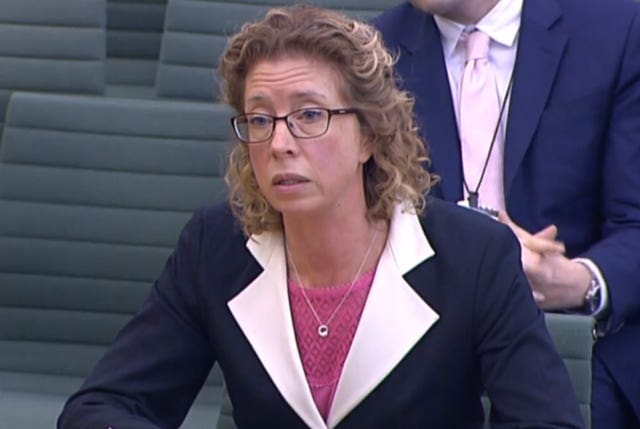Russia faces the prospect of being banned from the Olympics and blackballed from hosting major events, the World Anti-Doping Agency's compliance panel chair has said.
WADA said it would fast-track a "formal compliance procedure" to look into alleged "inconsistencies" in data handed over to the agency's investigators. The Russians have been given three weeks to provide an explanation.
If substantiated, the results could trigger a fresh ban on Russian athletes for next year's Tokyo Olympics as well as the country being unable to host major events.
The New York Times has reported that if the matter leads to a case in the Court of Arbitration for Sport and there is a negative ruling for Russia, it may prompt a suspension which could put at risk not only its Olympics participation but also its football team's involvement in 2022 World Cup qualifiers.
WADA's compliance panel chair Jonathan Taylor told BBC Sport: "In a case with a 'critical non-compliance', there is now a starting point for the sanctions that can go up and down, and they do include sanctions against RUSADA (the Russian anti-doping agency) and options include no events hosted in Russia, and they do include no participation of Russian athletes in world championships and up to the Olympics.
"There's evidence this data has been deleted. We need to understand from the Russian authorities what their explanation is."
Data was retrieved by WADA investigators in January from the Moscow laboratory used by RUSADA. The data in question comes from a period between January 1, 2012 up to the end of August 2015.
In November 2015 RUSADA was declared non-compliant after a report highlighted systemic doping in Russian athletics.
WADA President, Sir Craig Reedie: "Today, the great majority of WADA's ExCo decided to reinstate RUSADA as compliant with the Code subject to strict conditions, upon recommendation by the Agency's independent CRC and in accordance with an agreed process. (1/2) — WADA (@wada_ama) September 20, 2018
Being able to access the data was one of the key conditions imposed as part of RUSADA being reinstated as compliant in September 2018.
RUSADA has been given three weeks to comment on the "inconsistencies" and to provide answers to a list of specific questions.
WADA said that, once a response had been received and analysed, its intelligence and investigations department and independent forensic experts would report back to WADA's compliance review committee, to decide whether further action was required.

Nicole Sapstead, the chief executive of UK Anti-Doping, which worked on testing Russian athletes and the training of Russian anti-doping officers during the period of non-compliance up to September 2018, described the news as "disappointing" and suggested RUSADA could turn out to be a "victim" in this case.
She told the PA news agency: "It is disappointing. Russia now needs to be afforded an opportunity to respond to the concerns that have been raised, before we all start pointing fingers and saying, 'I told you so'.
"If the data is found to have been manipulated, it is going to get very interesting.
"We engaged with RUSADA for two years and they were never anything other than open to the suggestions that we were making, it was very supportive and collaborative.
"They have been the subject of audits by WADA during this period when they were returned to compliance and they have not been found wanting.
"RUSADA – unless there is any allegation that there is impropriety there – may actually be a victim in all of this down the line.
"The country of Russia is not a signatory to the code. Therefore your right of recourse when it comes to something like non-compliance is restricted to taking action against the Russian Olympic committee, the Russian Paralympic committee, and the national anti-doping organisation.
"Even if something as significant as an instruction from 'on high' to manipulate this data, when I talk about RUSADA being a victim I mean that there are only so many organisations that can be punished in all of this."
If the data has been manipulated, Sapstead warned it could lead to difficulties in the successful prosecution of athletes suspected of breaking doping rules that the data relates to.
Professor McLaren explains immutable facts and evidence in his report that confirm the conspiracy and cover up techniques #McLarenReport pic.twitter.com/gTXuaMFb5X — WADA (@wada_ama) December 9, 2016
The 2016 McLaren report found that Russia had been involved in state-sponsored, systemic doping across a range of Olympic sports for four years between 2011 and 2015.
Despite that, some Russian competitors were permitted to take part at the Rio Olympics in 2016 after the International Olympic Committee delegated responsibility to individual sports' international federations to determine the eligibility of their athletes.
The International Paralympic Committee did ban all Russian competitors from the 2016 Rio Games.
Russian track and field stars remain barred by world athletics' governing body the IAAF, which announced on Monday there had been no change in the status of the Russian Athletics Federation (RusAF).
Rune Andersen, the head of the IAAF task-force set up to monitor Russia's anti-doping progress, told a meeting in Doha of the governing body's ruling council that key issues remained outstanding which prevented RusAF's reinstatement, including banned coaches continuing to work with athletes.
"There is a recurring problem of athletes and local athletics federations working with banned coaches which undermines the creation of any strong anti-doping culture," Andersen said in a statement released by the IAAF.






